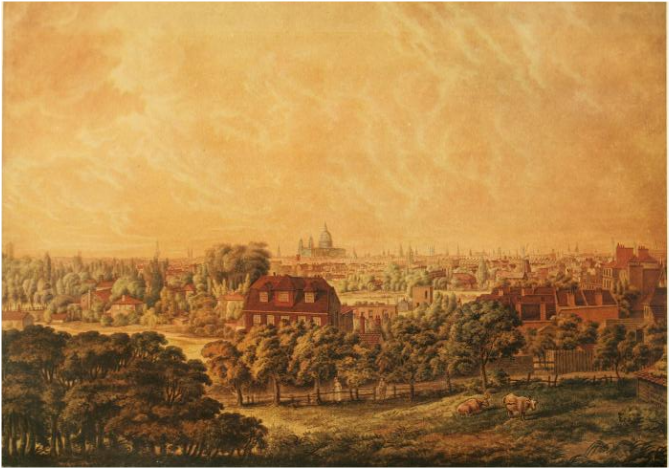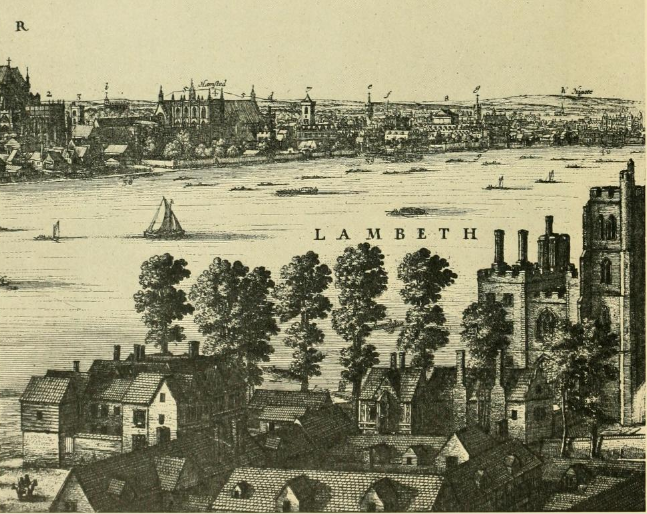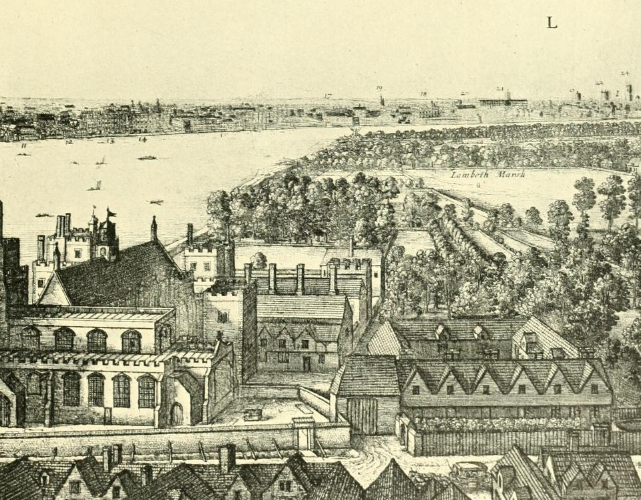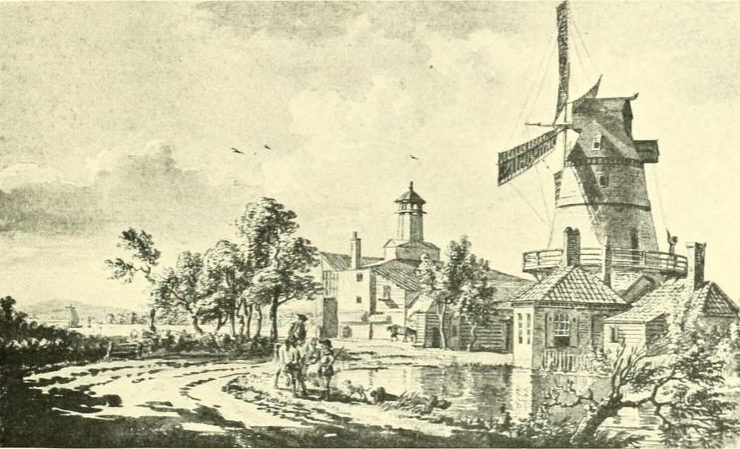MRP: House in Lambeth
House in Lambeth
Editorial history
20/12/11, CSG: Created page
Contents
Suggested links
See Places
To do
Edith Perrin, Sarah Wainman, & Richard Oxinden in Lambeth
Following the death of Elizabeth Dallison, Sarah Wainman, her former maid, lived in Lambeth, at the house of Edith Perrin, and sometimes with relatives some distance from London.[1] Richard Oxinden appears to have joined them in Lambeth, following the London fire of 1666, which presumably had destroyed his house. He probably resided in the same house.
He wrote to Sir George Oxenden relating that "I am at present w:th my Cozon Perimoure ye ?Master at Lambeth here is allso yo:s & yo:e never to be forgotten Sister Dallysons old faithfull servant Sarah Waynman."[2] The location of the Lambeth house or houses is unknown.
In the late 1650s Edith Perrin had been living near Ludgate Hill in the house of Tobell Aylmer, with whom she was probably related. Elizabeth Dallison and Sarah Wainman had also been lodgers, as was the Gray's Inn lawyer, Edward Kelke.[3] Sometime in the early 1660s Elizabeth Dallison and Sarah Wainman had moved to Throgmorton Street near the Exchange, probably as lodgers, near to the home of Sir George Smith, who was also resident on Throgmorton Street.
Lambeth in the mid-seventeenth century
Research this topic and add text
Images
View of London from Lambeth Marshes, 1804
View of London & Westminster, Hollar, 16XX, West
View of London & Westminster, Hollar, 16XX, East
Lambeth & Christchurch, Richard Blome, John Strype's London
Mill in Lambeth, ca. 1780
Image credits & copyright information
(1) 'View of London from a Gentleman's Seat in Lambeth Marshes, 1804', Anon, in London County Council, Survey of London, vol. XXIII: South Bank & Vauxhall, The Parish of St Mary Lambeth, Part I (London, 1951)[4]
- Book and image out of copyright
- Sourced from Internet Archive copy
(2) 'Hollar's Prospect of London and Westminster', west side, in London County Council, Survey of London, vol. XXIII: South Bank & Vauxhall, The Parish of St Mary Lambeth, Part I (London, 1951)[5]
- Book and image out of copyright
- Sourced from Internet Archive copy
(3) 'Hollar's Prospect of London and Westminster', east side, in London County Council, Survey of London, vol. XXIII: South Bank & Vauxhall, The Parish of St Mary Lambeth, Part I (London, 1951)[6]
- Book and image out of copyright
- Sourced from Internet Archive copy
(4) Plate of 'Lambeth and Christchurch', Richard Blome, pub. in John Stow’s A Survey of London (London, 1720), appendix 1 page 87
- By kind permission of MOTCO
Possible primary sources
Possible secondary sources
- ↑ 2nd September 1667, Letter from Sarah Wainman to Sir GO
- ↑ 1st October 1667, Letter from Richard Oxinden to Sir GO, Lambeth
- ↑ C 9/243/65 f. 1
- ↑ 'View of London from a Gentleman's Seat in Lambeth Marshes, 1804', Anon, in London County Council, Survey of London, vol. XXIII: South Bank & Vauxhall, The Parish of St Mary Lambeth, Part I (London, 1951)
- ↑ 'Hollar's Prospect of London and Westminster', west side, in London County Council, Survey of London, vol. XXIII: South Bank & Vauxhall, The Parish of St Mary Lambeth, Part I (London, 1951)
- ↑ 'Hollar's Prospect of London and Westminster', east side, in London County Council, Survey of London, vol. XXIII: South Bank & Vauxhall, The Parish of St Mary Lambeth, Part I (London, 1951)



